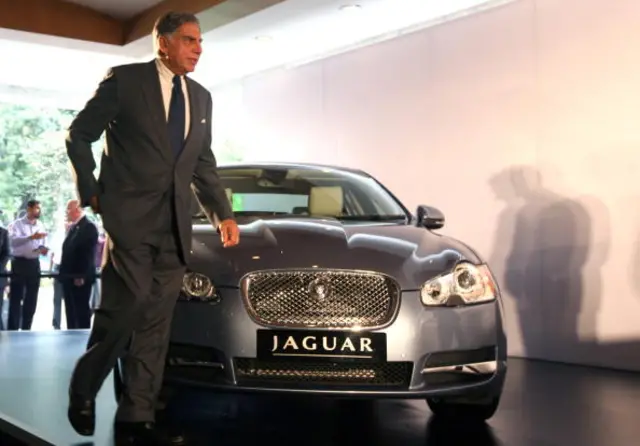


Sameer Hashmi
Middle East business correspondent, reporting from Dubai
In
2010, Tata surprised the business world by announcing he would retire in
2012, the year he turned 75, sparking uncertainty about his successor after
more than two decades of leadership.
Following the announcement, he didn’t do any interviews.
Months later, I travelled to Cape Town where Tata was inaugurating a new Taj hotel. During the press conference, I asked him about his decision to step down despite his PR team’s objections.
Tata calmly told me that “the company was not pushing me out, I was choosing to go, it’s my desire” and in his trademark humour added that he didn’t want to be “carried out in a box” from his office.
When we met a few months later, I asked him about Jaguar Land Rover (JLR), which had reported strong sales for the first time since Tata Motors acquired it in 2008. The company had initally faced criticism for the purchase but a delighted Tata said, “We feel vindicated; we always knew this would pay off in the long term.”
In our conversations, he often expressed his belief that Indian companies could succeed globally. This vision led to other major acquisitions under his leadership – including Tetley and Corus (now Tata Steel).
Tata was pleased with India’s growing global stature and remained optimistic about it, while acknowledging the challenges ahead.
In 2019, when I met him the last time in Mumbai, his final words to me were: “I may not be around to see it, but for India, the best is yet to come.”
 Image source, Getty Images
Image source, Getty ImagesTata Motors bought Land Rover and Jaguar Cars from Ford in 2008